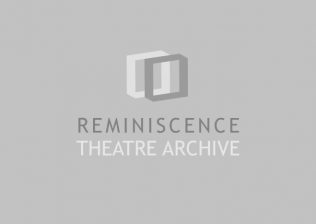Harry Isenberg


If you would like to listen to a short section of the interview as you read, please press the play button on the right. If you would like to read the whole interview transcript please follow the download link at the bottom.
EXCERPT:
Marjorie This is an interview between Marjorie Monnickendam and Dr Harry Isenberg on the 5th of March 1987. Harry, first of all tell me about your parents, about your father, where did he come from?
Harry Isenberg My father came from Warsaw, the outskirts of Warsaw, roundabout the age of 18, before the First World War and he went to work in a gown shop as a tailor in Brick Lane where he met the daughter of the shopkeeper and married her eventually. Now her mother – Mrs Baranovski – was smuggled over the border, she used to tell me this, at turn of the century, I couldn’t quite get the date, and she arrived in England and I think she was married in England. My Zeder [Grandfather] I don’t think ever did a days work. He died fairly young I think – he used to have (015 ) great pain. He used to go to shul, I used to go to shul, and we had a very nice time. And…
M So where did they come from, where did your grandmother and grandfather…
H Well my Grandmother was smuggled over the border from Russia. My father came from Poland, from Warsaw and his father came over later. His father came over- and I think he was a milkman in Warsaw. My father sang in the Shule, in the choir Chazan Sirotta. He had a very nice voice my father, a tenor type of voice, I’ve got a base voice. As I say he was a tailor and worked in my grandmother’s shop. And when he married my mother we lived in 82 Hanbury St.
M What was 82 Hanbury St. was it a house or…
H 82 Hanbury St we lived on the first floor over an estate agent, two or three doors from the corner Spital St. In Spital St, on the outside of the corner there was … they kept horses there, I think that’s where they kept the horses who used to take around the milk floats. I remember buying milk from the float in one of these lovely little brass containers with a handle with a little cap and pouring it out, fresh from the cow. We used to keep cows, it was a cow shed basically I think.
M And how big was your place ?
H Flats… In the front room was a dining room come lounge come bedroom for my sister and myself. My sisters leapt on the bed and I slept on the couch. Next to that was my parents bedroom. Then at the back was a small kitchen, very small, and an even smaller scullery. And there was a lavatory downstairs in the backyard. I remember I used to have baths, when I was very young, standing up in a tin bath. And eventually used to go to Public baths once a week, on a Friday I think it was, we used to say – if you wanted more water – “more water… hot water, No.4, and that kind of thing.
M What language did you speak at home ?
H English. My parents, of course, used to speak in Yiddish when they wanted us kids not to understand anything. I was… my sister was two years older than I am. I was born on the thirteenth of January, 1916. So they must have been married about 1914, something like that, I should think.
M So your father didn’t serve in the army here during the war ?
H No.
M Did they take British nationality ? Did your father have British nationality ?
H I don’t think he did. I’ve got a travel document … when you had to get permission to go out of London during the war, and the name isn’t as it is spelt now I S E N E, he used Adzenberg A D Z E N. Its an interesting document- giving you permission for outside of London for one night.
This page was researched by University of Greenwich Student Sufyan Hanif, as part of the 2nd Year HIS1078 History in Practice work placement.





No Comments
Add a comment about this page